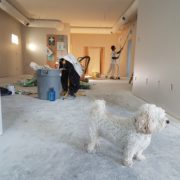How is Depreciation Applied Following Natural Disasters?
Irrespective of the country you are in, you would often hear of the havoc that natural disasters can cause. Whether it’s the bushfires in NSW or Queensland, or the Victorian floods this year, natural disasters happen with frightening regularity. While the loss of human life in such disasters is an irreparable loss, there are other ways that the victims suffer. For example, the destruction and damage of property causes losses of millions of dollars every year, for homes, offices, and commercial property. The owners of these properties find themselves in a very difficult situation. Some need to be rebuilt from scratch. Others are slightly luckier, and they can get by with replacing most of their assets.
This rebuilding and renovating after a natural disaster does often result in an almost new structure. As far as the property valuation goes, it impacts the tax payable as well. This is because the property attracts different depreciation rules after repairs following a natural disaster. Because of the different depreciation amounts and percentages, the tax-deductible due to depreciation also changes. After suffering such loss of property due to a natural disaster, the least you can do is to ensure that you don’t pay more tax than you ought to.
A Few Definitions
Before you get into the calculation of depreciation for tax purposes, it’s best to understand a few key terms that would often be used. When you need to undertake minor work in order to return your house to its earlier condition, you are said to be undertaking repairs. Sometimes, some fittings or fixtures of your house are spoilt, broken, or damaged after the natural disaster strikes. In that case, they would need to be replaced by new assets. When you undertake some works to improve the look, utility, or specifications/dimensions of some assets without replacing them, you are said to have improved or upgraded it. If you are working on your tax-related depreciation calculations yourself, it is imperative that you know and understand these terms – even if you are employing the services of a quantity surveyor, you should still be aware.
How to Calculate Depreciation?
If you wish to make an accurate property depreciation report, you need to understand the different calculations yourself. First, if it is simple repairs, then you need to immediately deduct those expenses if you do not have insurance coverage. If you have insurance, you need to also declare the insurance income you received. If your work is a little more detailed and you need to replace things, then you must first find out the residual value of that replaced asset – this is only if you do not have insurance. If you do, then before claiming depreciation on property, you must adjust the values of Individual Depreciation Assets and Capital Allowance. The flow of calculation would be similar when you are improving or upgrading your assets.
Conclusion:
There is no denying the fact that if your property is hit by a natural disaster, there is little you can do, except wait till it passes. But later, you can always make an accurate assessment of your depreciation to minimise your tax commitment.












